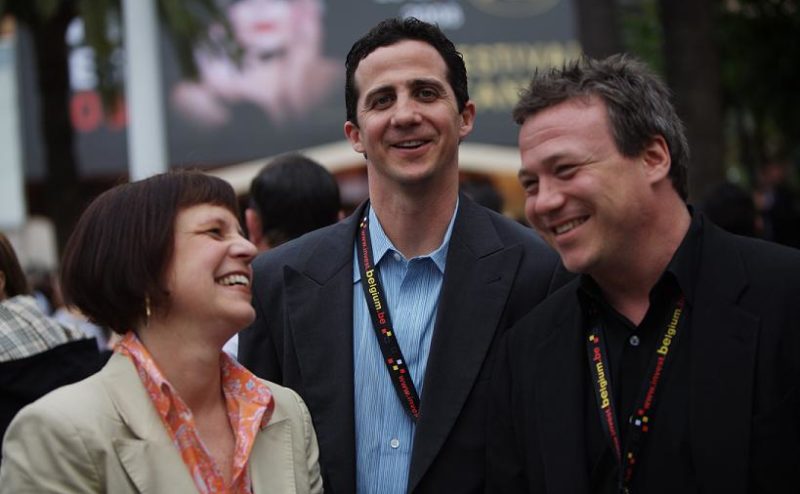
Company/Organization Profiles | Connecticut | Filmmaking | Local Industry
Connecticut Organizes to Keep Production In-State
Written by Jared M. Gordon | Posted by: erin
The newly-formed Connecticut Production Coalition seeks to defend New England’s biggest tax break for filmmakers.
[the_ad id=”26042″]
Founded in 2008 by a cadre of industry professionals and enthusiasts, the Connecticut Production Coalition’s (CPC) goal is to support Connecticut’s tax incentive and build the local industry. Connecticut passed a 30 percent film and digital media tax credit (which took effect in July 2006), offering the region’s highest overall percentage credit.
In New England, Connecticut joins the ranks of Massachusetts and Maine in the effort to organize industry at the state level, independent of state government or state-run film offices.
The CPC’s founding members include the Connecticut Film Center, the Connecticut Film Festival, and various production companies with ties to the Constitution State. Bruce Heller, managing director of the Connecticut Film Center, explained the CPC’s priorities: “The first thing is to keep the production credit in place. The second thing is to create jobs in the state.”
Films such as Sam Mendes’s Revolutionary Road, Roger Kumble’s College Road Trip, and Steven Spielberg’s Indiana Jones and the Kingdom of the Crystal Skull have been filmed in Connecticut in recent years, but proponents of the state’s tax incentive are hoping for even more.
Pointing to tax credit successes in other areas, Heller said, “Now is a great time to be a media producer in Connecticut. In Montreal, Vancouver, Louisiana, New Mexico… these are all places that had incentives for media makers, and now these places have people employed in the industry in the thousands. There are production centers statewide in Louisiana. We hope to see production centers all over our state as well.”
Connecticut’s tax incentive does not only cover film production. Heller added, “We represent filmmakers, television productions, Internet content providers, video games, and visual effect houses, to name a few.”
Tom Carruthers, executive director of the Connecticut Film Festival, explained, “It’s a good idea to put this organization together. There needs to be a study to really analyze how the tax incentive trickles down to help local businesses in the state, therefore proving that the credit is worth keeping. When the economy goes bad, the first thing they want to do is cut these sorts of credits, but in the two years since this credit came into effect, nearly $600 million of production business has been done in-state compared to far less in years prior.”
The economic downturn and political change have led to a sharp focusing of the CPC’s efforts. Heller said, “The champion of the tax credit, House Speaker Jim Amann, has resigned, and we’re facing a deficit in the state for the first time in years. Many state programs are facing cuts and this is something that’s on the list to be looked at, so we want to make sure it stays in place.”
How will the CPC work towards this goal? “Within the next few months, we’ll be at public hearings, assembling mailing lists, putting out newsletters, organizing a job fair, and putting the word out there that people from all industries are seeing dollars from productions that occur in our state, whether they’re in the industry or even if they work at a laundromat, restaurant, or hotel. We’re going to discuss what productions are coming in and how it benefits the state at large.”
The CPC’s website (www.productionct.com) maintains that, “Film crews inject cash into the local economy as they pay for permits, rent homes, buildings and parking lots from property owners, spend money at hardware stores, printing shops, coffee shops… and many other businesses.”
Surrounded by states with tax incentives such as New York’s 30 percent (35 for productions in New York City), Massachusetts’s 25 percent, and Rhode Island’s 25 percent (for projects over $300,000), what does Connecticut have to offer? Heller continued, “Our 30 percent credit on projects over $50,000 is extremely competitive. Within a two-hour drive you’ll find mansions, depressed areas, farmlands, cities, and so many locations for a lot of looks.”
Regarding any pressure or competition brought on by neighboring states, Heller said, “New England has become a production center again, and I try not to look at it like a competition. We encourage producers to find the best locations possible for their work. While our tax credit is larger than that in Massachusetts, there’s a 40-42 percent rebate in Michigan, although it caps above the line. We cover above and below, so it’s one of the most competitive in the country.”
Media production is, according to the CPC website, “An industry that effectively replaces lost manufacturing with high paying jobs that tend to attract young people and those trained in the trades, technology and the arts.” But are young people willing to risk a career in media production during times such as these?
From Bruce Heller, an answer: “Even considering the economic downturn, now is a great time to be in production. If you can produce it and grow an industry in a state where you have an incentive to do that, then it’s a great time to do it. The idea behind the tax credit is to grow jobs in Connecticut, and we’re starting to do that. If we can keep it in place for years, we’ll grow a nexus.”
Regarding next steps, the CPC is in wait-and-see mode to find out how the CT legislature will construct the state’s new budget and whether the production credit will still be included. CPC membership is free and open to persons of any state’s residence.
For more information:
CPC – www.productionct.com
Connecticut Film Center – www.ctfilmcenter.com
Connecticut Film Festival – www.ctfilmfest.com
For more information: CPC – www.productionct.com Connecticut Film Center – www.ctfilmcenter.com Connecticut Film Festival – www.ctfilmfest.com









